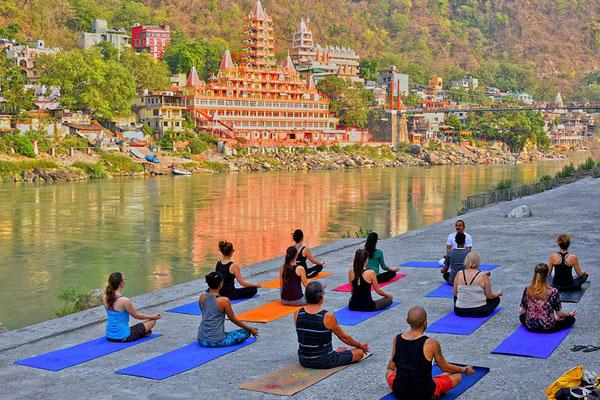Mental health challenges like depression can feel isolating and overwhelming, often affecting every aspect of life—work, relationships, and personal well-being. While therapy and medication are common treatment options, more individuals are exploring holistic and immersive approaches to healing, such as retreats for depression. These retreats offer a safe and nurturing environment designed to help participants recover emotionally, mentally, and physically. This article will explore what a retreat for depression is, how it works, and what someone can expect from attending one.
Understanding Depression Retreats
A retreat for depression is a structured, residential program where individuals struggling with depression can step away from their everyday environment to focus entirely on their mental health. These retreats are often held in tranquil, natural settings—like mountains, forests, or near the ocean—where the surroundings themselves contribute to a sense of calm and healing.
Unlike a typical vacation or spa stay, a depression retreat is designed with professional therapeutic guidance. Licensed mental health practitioners, counselors, psychologists, and holistic wellness experts collaborate to provide a comprehensive healing experience. The retreat typically lasts anywhere from a few days to several weeks, depending on the program and the participant’s needs.
Goals of a Depression Retreat
Depression retreats are centered around several key goals:
Providing a Supportive Environment: Removing daily stressors and triggers allows individuals to concentrate on their well-being without outside pressures.
Promoting Emotional Healing: Through therapy sessions and emotional processing, participants work on understanding the root causes of their depression.
Teaching Coping Strategies: Retreats equip individuals with tools like mindfulness, stress management, and self-care practices to maintain mental health after returning home.
Encouraging Physical Wellness: Many retreats integrate physical activities such as yoga, meditation, and nature walks, which are known to boost mood and reduce stress hormones.
These goals work together to create a space where healing and personal growth are possible in ways that may be harder to achieve in a traditional outpatient setting.
How a Depression Retreat Works
- Assessment and Personalized Planning
Upon arrival, participants typically undergo an assessment by mental health professionals. This includes discussing their emotional state, medical history, current medications, and therapy background. Based on this evaluation, the retreat staff creates a personalized care plan tailored to the individual’s unique mental health needs.
- Therapeutic Modalities
Depression retreats combine different evidence-based therapeutic approaches, such as:
Individual Therapy: One-on-one sessions with a licensed therapist to explore personal struggles, trauma, and emotional patterns.
Group Therapy: Small group discussions that foster peer support, reduce isolation, and build a sense of community.
Cognitive Behavioral Therapy (CBT): Helps individuals recognize and change negative thinking patterns that contribute to depression.
Mindfulness-Based Therapy: Teaches present-moment awareness to reduce rumination and stress.
These sessions provide both emotional release and practical strategies for coping with depression.
- Holistic Wellness Activities
In addition to formal therapy, retreats often incorporate holistic practices aimed at improving physical and emotional well-being. These may include:
Yoga and stretching exercises
Meditation and breathing techniques
Art therapy or music therapy
Nutrition counseling and healthy meals
Nature therapy, such as forest bathing or eco-walks
Such activities help regulate the nervous system, promote relaxation, and encourage the release of mood-boosting endorphins.
- Educational Workshops
Many retreats offer workshops on topics like emotional resilience, self-compassion, boundary setting, and stress management. These educational sessions empower participants with knowledge and skills they can apply in their daily lives after the retreat.
- Community and Support
One of the most powerful aspects of a depression retreat is the sense of community it creates. Being surrounded by others who understand and share similar struggles can reduce feelings of loneliness and shame. Participants often form meaningful connections that continue beyond the retreat, providing ongoing support during their recovery journey.
The Environment Matters
The location and atmosphere of depression retreats are intentionally designed to foster peace and healing. Many are set in serene, nature-rich environments far from urban noise and distractions. Research shows that spending time in nature reduces cortisol (a stress hormone), lowers blood pressure, and enhances overall mood.
This break from daily routines allows the mind and body to reset. Without the constant demands of work, social media, or family obligations, individuals can reconnect with themselves and focus solely on recovery.
Who Can Benefit from a Depression Retreat?
Retreats for depression can benefit a wide range of individuals, including:
Those experiencing mild to moderate depression who want an immersive healing experience
People who feel burned out or emotionally exhausted from work or life stressors
Individuals who have tried traditional therapy but want to deepen their healing through a holistic approach
People looking to prevent relapse after recovering from a depressive episode
However, it is important to note that these retreats may not be suitable for people in acute crisis or with severe suicidal ideation. In such cases, immediate clinical or hospital-based care is often more appropriate. A mental health professional should always be consulted to determine whether a retreat is the right fit.
After the Retreat: Integrating What You Learn
One of the main challenges after attending a depression retreat is transitioning back to everyday life. Many retreats address this by offering:
Aftercare plans and follow-up counseling
Virtual support groups or online therapy sessions
Guidance on building supportive routines and continuing self-care
This ensures that the benefits of the retreat are long-lasting and not just a temporary escape from problems.
The Benefits of a Depression Retreat
Attending a retreat for depression can lead to several positive outcomes:
Improved emotional awareness and stress management
Reduced feelings of isolation and loneliness
Better coping skills for handling future challenges
Enhanced self-esteem and self-compassion
Renewed sense of purpose and hope
While results vary for each person, many participants report leaving with a lighter emotional burden and a clearer path forward.

